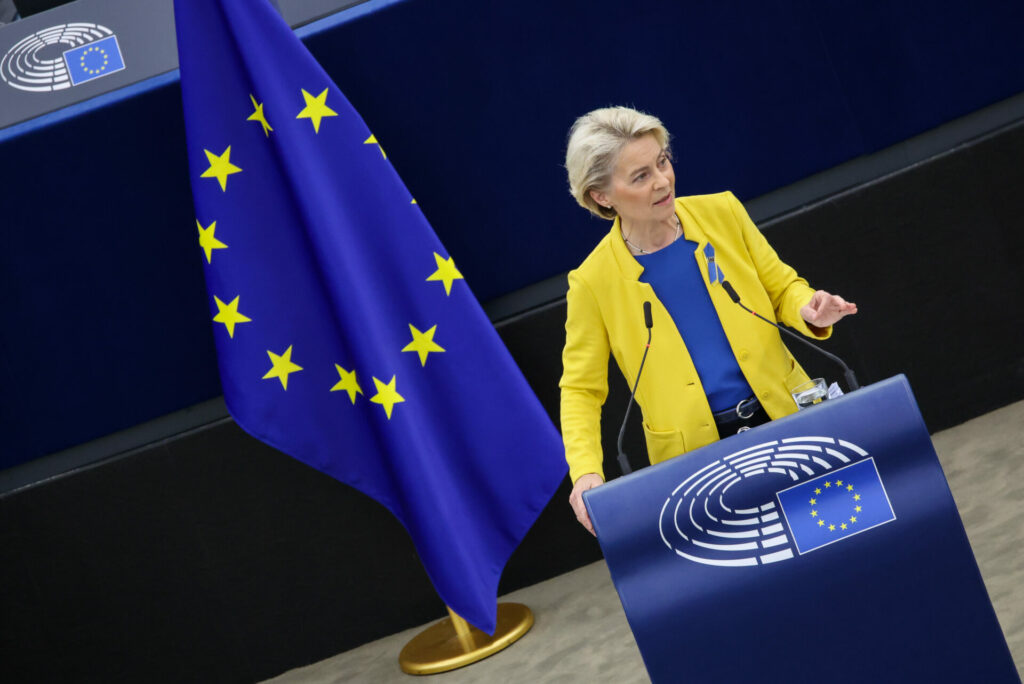The European Commission announced its proposal for the tenth package of sanctions against Russia over its invasion of Ukraine, announced President Ursula von der Leyen on Wednesday.
First, the Commission proposed further export bans worth more than €11 billion to deprive the Russian economy of critical technology and industrial goods. For maximum impact, the EU is targeting many industrial goods that Russia needs, and that it cannot get through backfilling by third countries.
"For almost a year, Russia’s war of aggression has been sowing death and destruction. We are making Russia pay," she said during a speech. "Today, we are turning up the pressure with a tenth package of sanctions."
The ban concerns vital goods such as electronics, specialised vehicles, machine parts, spare parts for trucks, and jet engines. The EU is also targeting goods for the construction sector, which can be directed to Russia’s military, such as antennas or cranes. Secondly, the Commission suggests further restricting the export of dual-use goods and advanced tech goods.
"We propose controls on 47 new electronic components that can be used in Russian weapons systems, including drones, missiles, helicopters, and on specific rare earth materials and thermal cameras," said von der Leyen. "With this, we have banned all tech products found on the battlefield. And we will make sure they do not find other ways to get there."
For the first time ever, the Commission also proposed to add third-country entities to the Russia dual-use sanctions – a ban which primarily concerns Iran, which supplies Russia with drones to attack civilian infrastructure in Ukraine.
With these new measures, seven Iranian entities will be under a complete ban on selling sensitive items to Russia. "We stand ready to list further Iranian and other third-country entities that are providing sensitive technology to Russia," said von der Leyen.
The EU is also proposing to expand the sanction list of Russian President Vladimir Putin’s propagandists, military and political commanders with almost 100 additional people and entities responsible for military activities, political decisions, propaganda, and disinformation, added EU High Representative Josep Borrell.
Related News
- EU steps up its fight against Russia’s manipulation of information about the war in Ukraine
- 'Important day for European unity': Zelenskyy woos Brussels during historic visit
- 'Non-cooperative jurisdiction': EU adds Russia to tax havens list
The tenth package also introduces new measures to prevent circumvention to ensure that the sanctions are strictly applied, stressed von der Leyen.
"We will track oligarchs trying to hide or to sell their assets to escape sanctions and together with Member States we will set up an overview of all frozen assets of the Russian central bank held in the EU," she said. "This is crucial in view of the possible use of public Russian assets to fund reconstruction in Ukraine."
In this context, the European Commission will organise a Sanctions Focal Points Forum next week, bringing together the EU’s international partners and Member States to strengthen sanctions enforcement efforts.
"I call on the Member States to adopt this new package of sanctions swiftly. Our aim is to have, together with our G7 partners, further significant sanctions in place by 24 February – exactly one year after Putin launched his imperial war," said von der Leyen.

